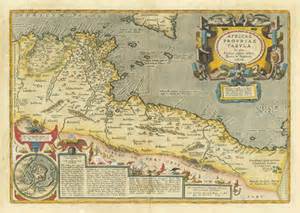This issue looks at the Israeli military buildup and how Thomas Jefferson dealt with Muslim piracy.
OUR ISRAELI CONNECTION
Today two Israeli warships passed through the Egyptian Suez Canal into the Red Sea. It was just last week that another Israeli vessel, a submarine, did the same. So, there is no doubt that Israeli naval power is building up either in the Gulf of Elat, or possibly even in the Indian Ocean. Either of the two scenarios should make Iran nervous because it is now believed that all these ships are armed with cruise missiles and are capable of carrying a nuclear warhead giving Israel a first or second strike capability, if they should decide to attack.
At the beginning of the civil unrest in Iran it was thought that it would work in Israel’s favor, but to me it seems to be working in the other direction and causing Iran to think that Israel could consider this an opportunity to strike them while they are preoccupied quelling the rebellion on their streets.
Iran does not want to commit suicide, and that is what will happen if they send missiles upon Israel. Israel knows that, even if they were to win this war, the price would be the greatest ever paid because nuclear weapons will be used and hundreds of thousands will perish – not only here in Israel but in Iran, Lebanon, Syria and God only knows where else.
This whole insane debate over the so-called “illegal settlements” in Judea and Samaria and the “Two State Solution” is merely a smoke screen. No one believes that any agreement between Israel and these Iranian backed Arabs [who now call themselves “Palestinians”] will solve anything, or could ever be reached anyway.
IT’S NEWS TO ME
When our nation was in its infancy, Muslim pirates systematically attacked American merchant ships in the Mediterranean. In 1784 the Continental Congress agreed to enter into treaties with the four Barbary States (negotiate with terrorists). Without the ability to adequately protect its ships, the fledgling American government tried to appease the Muslim slavers by paying a tribute (Jizyah) as well as ransoms in an attempt to purchase the release of captured American sailors and ships. John Adams argued that all things considered, paying the tribute was the cheapest way to get commerce moving again in the Mediterranean. Thomas Jefferson thought otherwise, believing that there would be no end to the demands for tribute. He believed war was the only real solution.
With the “appeasers” in congress winning out, the next fifteen years saw the American government paying out millions to the Muslims. These payments amounted to 20 percent of the federal government’s total annual revenues in 1800! As president, Jefferson was now in a position to end the “extortion.” He dispatched American Marines and some of our best warships to the Barbary Coast. The Muslim surrender at Tripoli brought the return of all Americans who had been held as slaves. Intense naval bombardments and on shore raids by the Marines eventually brought an end to the piracy altogether. Jefferson’s victory is memorialized in the line of the Marine Hymn “From the Halls of Montezuma to the shores of Tripoli.”
Nations around the world have paid out millions to modern-day pirates. Hopefully, America’s response to the attack on the Maersk Alabama will change things. Unfortunately, America’s policy toward Israel shows that we haven’t learned from history. The endless (and unsuccessful) “land for peace” deals promoted by American diplomats and presidents have been worse than tribute payments in that they have all resulted in increased violence against Israel.
A reminder
My ministry is to help educate and equip the Church regarding our obligations to Israel and to keep America from self-destructing. I do this primarily through my books and speaking engagements. If you have any contacts within a church that needs to hear what you read weekly in my newsletters and blogs, please direct them to my website. If you haven’t read any of my books, check them out and consider giving one as a gift.
RELATED ARTICLE
OTHER RELATED ARTICLES
ON THE LIGHTER SIDE
No matter how much you push the envelope, it’ll still be stationery.





